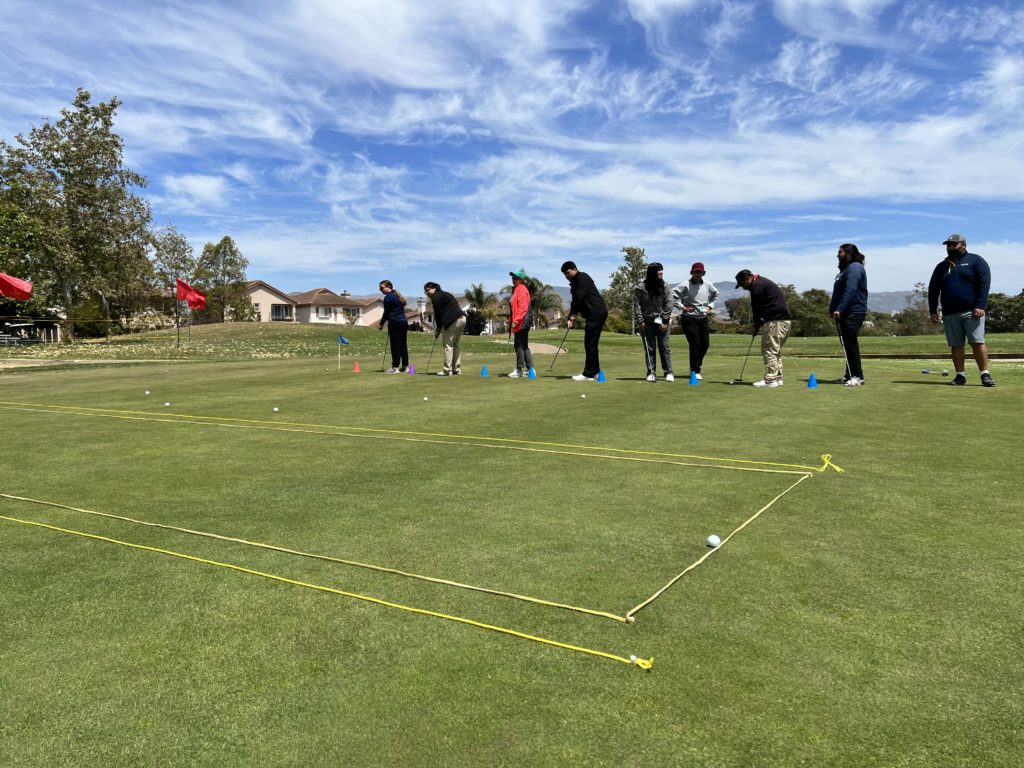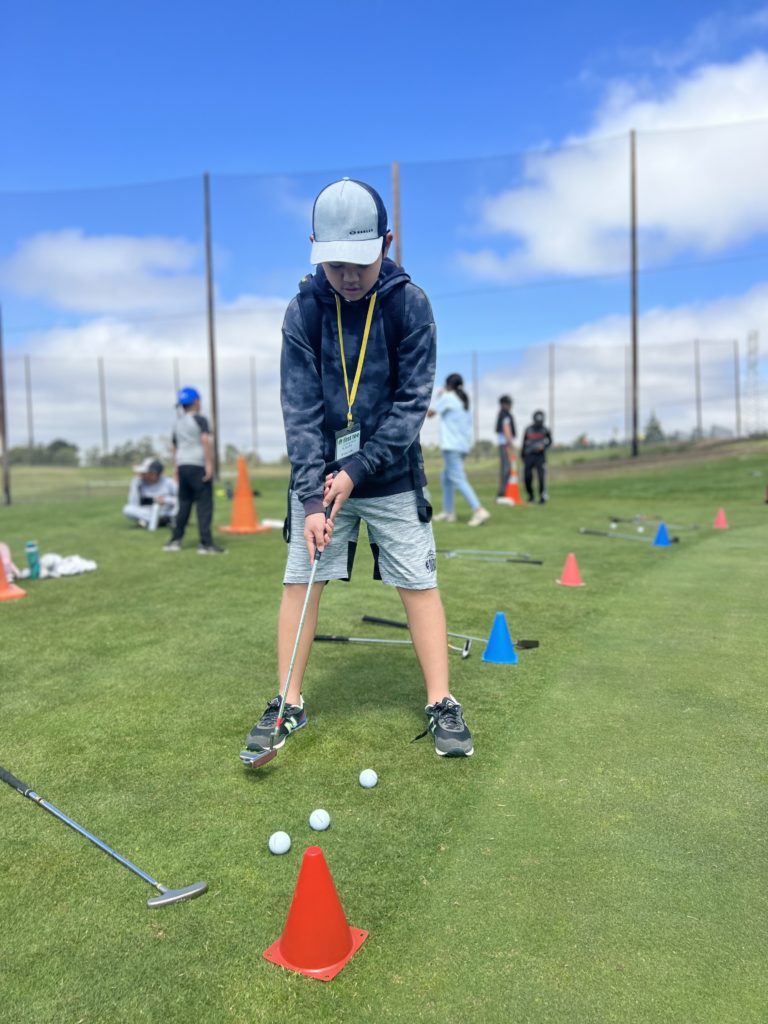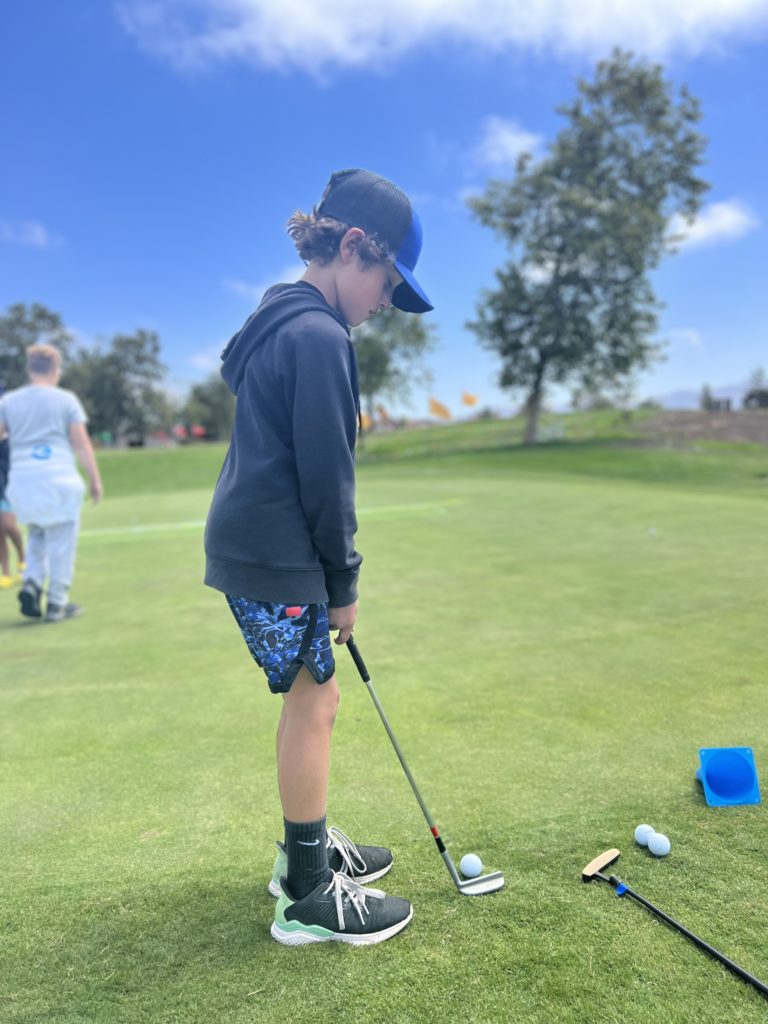Having fun with intention creates a safe, engaged, and exciting environment where kids will get the most out of training. Beginning a practice with a set intention or a goal emphasizes clear communication. A set intention for practice also encourages kids and coaches to celebrate small victories; otherwise, practices become dull and cause burnout.
Changing activities builds excitement for kids and allows for more opportunities. When a coach is creating a new activity, they should ask themselves: How can I make the goal of this activity challenging with different processes? Changes can include minor tweaks to the activity’s lesson plans based on the personalities and skills of the kids.
“Modifications can be as simple as adding more color with setup and golf balls! The kids love point systems based on similar shapes or colors around them, like If a kid has a red putter, they challenge themselves to target the red noodle for 2 points.”
Coach Jose, Level III

The spontaneous shifts in the lesson plans capture the kids’ attention and make activities fun.
A bit less structure, adaptability, and modifications bring fun to the kids, and they will feel more heard and included. More excitement from the kids leads to more engagement and opportunities for creativity and inclusivity.
“My favorite game is Noodle Blasters because we get to use the colored clubs and tennis balls to hit all the different noodles for different points,” – said Sophia J., First Tee – Monterey County Participant.
Do you want to have fun with intention? A great way to do so is during a game of 21 on the putting green.
21 is a game that can be set up all day for programming for kids of all ages! 21 embraces adaptability with easy modifications to the setup, equipment, rules, and point system. The game is set up with a team (or two for an exciting competition!) and two ropes-or more! During the setup, there is a line of cones for kids to line up behind, with rope lined up in front of the cones. The spaces between the ropes should gradually become thinner. Each space between the ropes is worth a different amount of points-the narrower the area, the more points. The first team to accumulate 21 points wins, but they cannot go over 21 points!

The game requires strategy, teamwork, and distance control. If a team goes over 21 points, a coach can subtract 12 points- or bring the team back to zero points! For an added challenge, you can have the team (or teams!) switch sides to experience different environments. You can keep up the challenge by playing on other greens, requiring players to adapt and create new strategies!



